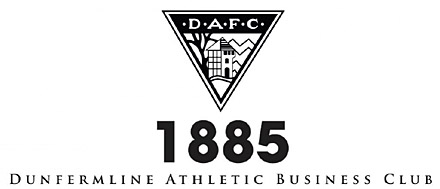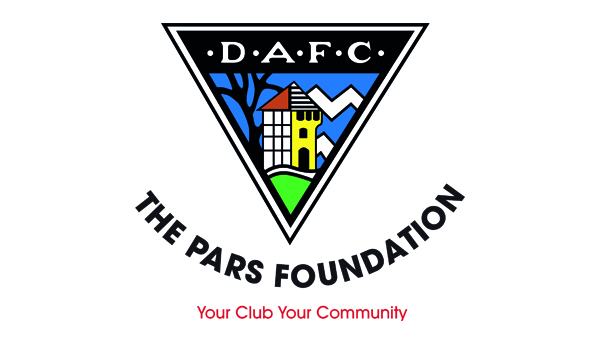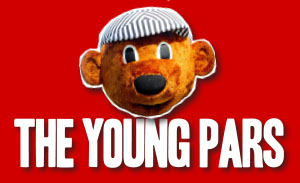Bill Leckie's message to 1885 Club
Thursday, 13th Mar 2014"Football can never be seen as a business in normal business terms.
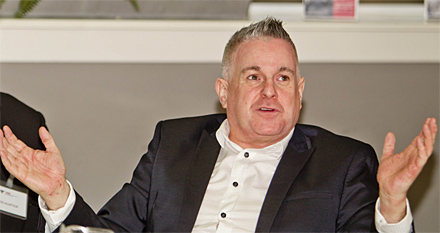
Bill Leckie addressed the launch of the 1885 Club at East End Park and recalled the days before Jim Leishman was Provost and even as far back as when Dunfermline Athletic played in the semi finals of the European Cup Winners Cup. How different football is in 2014; he felt that to change in football, sometimes you need to look back to go forward:-
"What did we know then that we have lost now? Change is everywhere. I work in an industry now that is changing beyond comprehension. We are moving into the digital age, you have laptop editions of the paper and I don't know whether in twenty years time people will actually buy newspapers. I think there should always be a place for it - people sitting on a bus like to open a paper.
"I was talking to some young students about it the other day, in twenty years time news might just be shot straight into your head with a wee pen. You just don't know. Twenty years ago I was going to games with my first mobile phone which was as large as a laptop.
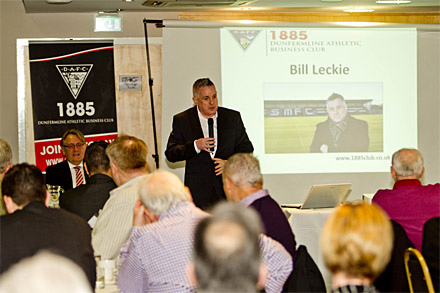
"Now I can go to any part of the world, the wireless comes on and away the story goes. The change in our industry is fantastic. When I started in my first job with the Clydebank Press in 1981, it was printed in a big shed over in Govan. At the time it was still the old lead type that they set the paper in. Guys would lock them in to these big wooden frames back to front and upside down - they could read that way. It was this massive big process and in those days in the Govan press the headlines were made of little wooden blocks like kids wooden letter blocks.
"That was only thirty years ago but now my paper, The Sun is printed out the M8 at this place which is just ridiculously technologically advanced. It can print 100,000 papers per hour, you can stop the press at any time you like, change a whole new story to go on and the speed that it changes at is incredible. The speed of how we cover news is changing, its incredible.
"If you look back to the start of the Second World War on 3rd September 1939, the newspaper next morning said 'Its War'. For people it was their first point of contact to find out what was going on. If you move forward to an event like 9/11, it happened at lunchtime on a Tuesday and it was seen live on TV the terrible things happening. We spend the whole day watch Sky or BBC as the whole thing develops.
"By that time the internet was up and running; people could follow things online. By that night newspapers were asking what do we put on the front page that people don't know? If you look back to the newspapers of September 12th 2001 you find that most of them just had a big image on the front page because you cannot tell people anything new about it.
"Inside you can write a million words of analysis, colour, hand wringing, sadness, anger and whatever else but on the front pages it has gone from saying 'It's War' and actually telling people what the news is to actually having to give people an image of the news that they will remember. Newspapers are now being overtaken by the very thing that we are meant to cover.
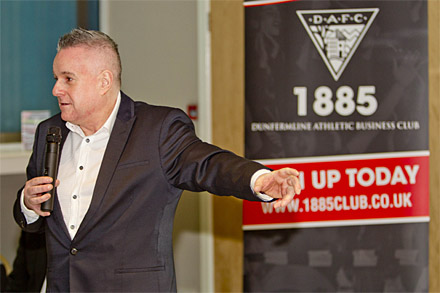
"You go to a football match and its different. In 1972 I could have been sitting at Ibrox and written Dunfermline last night beat Rangers at Ibrox with a magnificent goal from the bearded Jim Leishman which will never be matched etcetera, etcetera. Now if I am doing the same game everybody already knows because they have watched it on their phone, heard it on the radio, they have followed it minute by minute on the internet.
"So you either decide that your job has become redundant or you move your job on. My job on the night wherever we are, whether that is Dunfermline, Stranraer, Madrid or Barcelona is to move it on. Your job is not to say that last night a man scored a goal and the result was 1-0. It is, here is the man's reaction to scoring the goal, here is my analysis of how that goal was scored, here is somebody talking about how that goal was a greater goal than the last goal that was scored.
"We move on and if we don't move on in our industry we are going to die. There is no doubt about it. Look at the Leveson Inquiry, if we don't move on from that we are going to be sunk. They may say they will bring in legislation, that will keep the newspapers in check. The legislation doesn't stop people doing things wrong, newspapers will only change if we look back at the mistakes we have made.
"I say 'we' in a collective. The only way it changes is if every single journalist decided to act in a more professional and proper way. You can't build a pyramid from the point downwards, you have to build it from the foundations up. So if every journalist decides to act better, cleaner and fairer then newspapers become better, cleaner and fairer.
"On to the subject of football. Football has to change . If football can't change from the top down and the leagues in a few years decide to change the name of the product. Let's shuffle it about and play eight teams here, then drop into six teams there and take away the one you first thought of and play in three different sections. It just doesn't work, you can't shuffle it about at the top and hope that it gets better.
"That is why I am so happy to see a club like the 1885 Club coming together because football - whether it is Dunfermline, whether it is St Mirren, the Old Firm anybody - is at its strongest when local businesses work with local fans for local clubs. For a hundred years football and business were connected on in that a sport had attracted an increasing amount of customers - fans - and because of that you had to develop stadiums and players had become professional. You had to have a group of people who could finance the building of stadiums and the paying of wages.
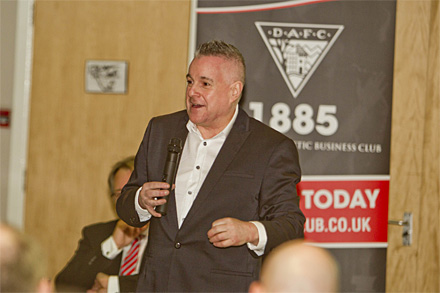
"That was as close as business had to get because the football was always the important thing. But somebody somewhere was the first to throw out this sound bite 'football is a business'. Looking back thirty years ago that was said and it has become an accepted wisdom but I think it is one that is completely wrong. Football can never be seen as a business in normal business terms.
"In Dunfermline's case, look at the end of last season. You had Airdrie here and a win you stay up. You absolutely mollocated them, you hit everything apart from the back of the net and end up not getting the result. Suddenly you are plunged into the play offs. Now if football was a business you would have been able to predict what was going to happen but you can plan football, you can strategise, you can work everything to a business principle right down to the last letter but then the ball goes in off somebody's backside and you get beat.
"That doesn't happen when you are making tins of beans - you know what the market is. We know how many papers to print because we know how many we sell. So you print that but in football you do not know what is going to happen in the last minute of a game, the referee's decision or if your star player is going to break his leg.
"Football as a business is never going to be a business in the sense that some guy comes in and says 'I have all this money, this is going to work'. I think we have all seen that doesn't work and in the time when Dunfermline, Rangers, Hearts and St Mirren to a certain extent were all being run by guys who thought if you throw enough money at it it would work, it was people like those in this room (the local businesses) who were marginalised.
"When this place was rocking and rolling it was people like you and your grandads, it was people who were working, not with fortunes but they were able to put their hands in their pockets when they had to but who most of all had the clubs best interests at heart.
"There is a way back for football and clubs like Dunfermline. The way is through what you are trying to do, it is through - ordinary fans getting together what money you have and making the best of it. The small business has been left out but the fan has also been left out. The one business principle that seems to have evolved is that you must charge the fans as much as possible because there are players wages to pay, stadiums to keep up therefore you will pay for it. But that's why fans are not going. They get better value on a Saturday by going to the cinema - £9 and it's warm and you know what is going to happen because you have read the reviews.
"Wee Jim McLean said 'I'd rather have 10,000 people at fiver than 5000 people at a tenner. Because they will buy a programme, they will buy a pie, create twice as much atmosphere. I would love to see a time when we get back to cutting our cloth, cut costs to get people back and the players are going to have to realise that.
"At the end of the day I want a product that I can come and watch and enjoy and feel a part of. That is the only way that we are going to get football going again in Scotland."
Bill didn't want expensive signings from Venezuela, "I'd rather have eleven guys from Hill of Beath getting paid a couple of hundered quid a week and a part time job. The people who used to go to football are still there but we need to find a way to attract them in. That is where football hasn't changed - the video games industry, the cinema industry, newspapers we are all having to change to say what do most people out there want?
"I think football has said 'we will tell you what you want and if you don't like it, it is your fault for not coming. They can't do that any more. It took a crisis at the end of last season to make the people of Dunfermline realise what Dunfermline Athletic meant to them in their heart of hearts. 'We'd better get along there for these play off games' but it shouldn't take a crisis.
"I am full of admiration for you. You could easily say 'it is not my problem, I did not screw the club up.' But you have not. You have said 'right it is my club, my dad's club, my grandfather's club, my brother's club, I love it'. You are all getting in there together.
"Let's get the guys the fans want to watch, let's play football the fans want to watch and let's give the fans an affordable way to come to the game. The only way back is to start again and build the pyramid from the bottom."
Views : 3,469

